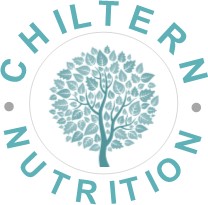Behind the Headlines – September 2018
Behind the Headlines - September 2018
There’s always a lot of nutrition news in the media. Unfortunately, a lot of the headlines are pretty sensational (moderation doesn’t sell newspapers!) and it can often make a difficult subject even more confusing. The truth is, nutrition is still a relatively young science, and there’s a lot we still don’t know. However, that means it’s exciting as new research is appearing all the time. Nutrition is also a notoriously difficult science to study, mainly because it’s very hard to measure accurately the impact of a food, nutrient or dietary intervention in isolation. Humans are complex beings!
As I studied to become a Nutritional Therapist, I was trained to critically review research papers, to look behind those click bait headlines and understand more about the quality of the research, the limitations of the study and the potential conflicts of interest. I therefore thought it might be useful to do a monthly round up of some of the key headlines you might have read recently, with my take on what you really need to know. This is just a summary though, so if there are topics you’re interested in reading more about, please let me know at chilternnutrition@outlook.com and I can write a more detailed post.
So, let’s get into it:
Probiotics are “quite useless”
Probiotics are live bacteria or yeasts, often described as “good bacteria”. They are thought to have a number of health benefits, helping support our own microbiome – the colony of good bacteria that live in our gut. But is taking probiotic supplements really helpful?
The research: These headlines were based on two studies. The first study compared samples from the gut and stools to see whether stool samples are accurate predictors of levels of probiotics elsewhere in the gut. The second looked at whether probiotics can help re-colonise the gut after taking antibiotics.
The findings: The first study found that in humans, the bacteria didn’t colonise the gut in more than half of the subjects, but simply passed through. The headlines therefore suggest that there’s no point in taking them if they don’t take up residence in your intestines! The second study did find interesting evidence that taking probiotics after antibiotics can actually delay the recovery of the microbiome for up to five months.
The limitations: Both these studies were pretty small, and when it comes to studies, size matters! The results of small studies are usually less statistically significant, so more research would need to be done. Also, the first study was not examining the effects of the probiotics, only whether or not they colonised the gut of the subject.
The bottom line: Gut bacteria is a fascinating new area of research. It’s important to say that there is still a great deal that we don’t know, and the studies to date have only just begun to scratch this surface of amazing topic. Other research suggests that probiotics don’t actually work by colonising the gut (which is what this study was measuring), but the chemicals they produce as they pass through the gut are thought to have a beneficial effect and they may also help reduce inflammation.
Taking a probiotic supplement won’t be appropriate or necessary for everyone. Each individual’s microbiome (the sum of your gut bacteria) is a unique as their DNA and everyone will react differently to probiotics, so it’s best to consult a professional before taking them. The biggest impact on your gut microbiome will come as a result of your diet and lifestyle. Eating a wide variety of plant based foods is key to good gut health. Eating naturally occurring probiotics found in live yogurt, kefir and fermented foods such as sauerkraut is also valuable for promoting diversity in your gut bacteria.
Eating a Mediterranean diet may lower your risk of depression
This headline claims that eating a diet based around wholegrains, fruit and vegetables, fish and fats like nuts and olive oil can is linked to a lower risk of developing depression that a more typical UK diet, which includes high levels of sugar and ultra-processed food.
The research: This study was based on analysis of lots of other studies on the topic (known as a meta-analysis), to try and reach a conclusion. It’s also an observational study, meaning that participants were simply observed by researchers, rather than being given a particular invention. The researchers reviewed 41 studies, each of which looked at a dietary invention and assessment of depression or depressive symptoms.
The findings: the study concluded that adhering to a Mediterranean diet could reduce the risk of developing depressive symptoms and developing clinical depression.
The limitations: Because this is an observational study, it’s impossible to demonstrate that it was the diet itself that led to the reduce risk for depression, although researchers think it’s strongly suggestive. However, there are a number of factors that researchers weren’t looking at. These include the fact that people experiencing mental health issues are less likely to take care of their health and less likely to eat a good diet. They may also be more likely to use coping mechanisms such as caffeine or alcohol. This makes it hard to say whether a good diet helps prevent depression, or whether if you have depression, you’re less likely to eat a good diet.
The bottom line: There is more and more research that suggests a strong connection between eating well and a reduced risk of mental health issues. The Mediterranean diet in particular may be useful thanks to the fact that it contains a wide variety of wholefoods. Many vitamins and minerals are involved in producing the neurotransmitters and hormones which contribute to good mental health, so a varied diet is key to ensuring good levels of these key nutrients. Omega 3 fatty acids have also been linked to brain health, so including healthy fats like, oily fish, olive oil and nuts is also important. There are also some interesting studies linking gut health to mental health, and a diet high in fibre rich fruits, vegetables and wholegrains can help promote diversity in our gut microbiome.
The causes of and treatment for depression are many and complex, so nutrition is just one aspect to consider. However, this is a very interesting area for future research and with mental health issues on the rise, I expect to see a lot more on this topic in the future.
Liz Driver, Chiltern Nutrition
Tel: 07853 664381
Our privacy policy
Copyright Chiltern Nutrition 2018. Designed by Cleverfrog Website Design


